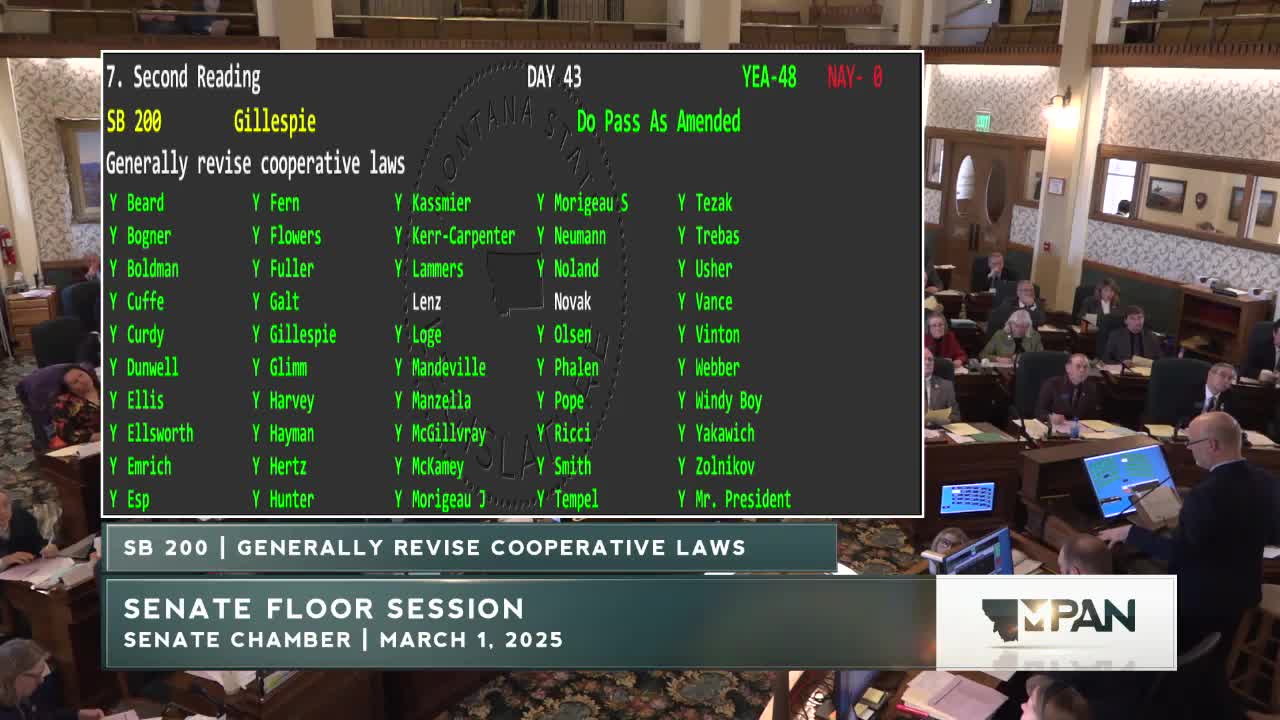Senate eases process for motor vehicle repair liens, allowing smaller courts to hear abandoned vehicle cases but drawing due‑process objections
Get AI-powered insights, summaries, and transcripts
Subscribe
Summary
Senate Bill 373 passed second reading and would let repair shops seek judicial relief for abandoned vehicles in more courts (justice court, small claims) rather than requiring district court; opponents warned the bill reduces personal‑service safeguards and may raise due‑process concerns.
Senate Bill 373, carried by Sen. Bill Usher, passed second reading after floor discussion focusing on abandoned vehicles, repair‑shop liens and the methods used to notify owners.
What the bill does: Key changes include permitting a court of competent jurisdiction other than district court to handle enforcement of repair‑shop liens for vehicles, clarifying the procedure for issuing an order to show cause, and adjusting service and filing locations to speed resolution for businesses with abandoned vehicles on their lots.
Why it matters: Small repair shops and dealerships told the committee they often carry the cost and space burden of vehicles left unclaimed; the bill aims to streamline the legal path to recover costs and clear lots. Opponents argued changes to service methods risk violating due process because certified mail and first‑class mail are less reliable than personal service.
Main floor debate
- Sponsor’s rationale: Sen. Usher said businesses can face long delays and storage costs for abandoned vehicles and that the bill allows lower tribunals (justice court, small claims) to adjudicate these claims.
- Due process concern: Sen. Sandra Olson questioned removing Montana Rules of Civil Procedure personal‑service requirements and noted mail delivery is unreliable in parts of the state. She cautioned that replacing personal service with certified mail could leave motorists unaware of court dates.
- Support from businesses: Several senators said local shops supported the change because it speeds disposition of abandoned vehicles and helps free up critical space.
Floor actions and outcome
- Motion to recommend passage — Senate Bill 373 passed second reading on a recorded vote of 39 ayes and 11 nays.
Notable transcript excerpts
- Sen. Usher: “Currently auto dealers have over a hundred abandoned vehicles sitting on their lots ... This really only does 3 things ... freeing up our district courts ... and explains ... the process for issuing the order to show cause.”
- Sen. Olson: Raised constitutional due‑process concerns over removing personal service requirements and noted that certified mail may not ensure timely notice.
Next steps: Because the bill passed second reading, it may be scheduled for a third‑reading vote on final passage. If enacted, clerks and justice courts will need procedures for issuing orders and for service by mail; courts may also need guidance to safeguard due process in rural areas with less reliable mail service.
